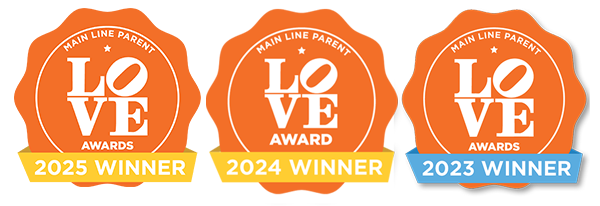Contrary to popular belief, being plus sized and pregnant does not mean you are destined to be classified as high risk, nor will you necessarily face numerous complications throughout your pregnancy. It’s important to note, some risks during pregnancy can be correlated to a higher BMI, but a majority of these conditions are manageable if they do occur. Having a high BMI does not mean they WILL occur.
The discrimination that comes with a plus sized pregnancy is traced back to a highly flawed and outdated table used to categorize body size. According to the BMI table that was created in the 1830’s by Adolphe Quetelet, having a BMI of 25-29 is considered overweight and having a BMI of 30+ is considered obese. For some, this language used to describe body size can be defeating, offensive or even harmful.
For many pregnant people, a time that is supposed to be happy and joyous, becomes full of concern and worry when they are classified as “overweight” or “obese” as labels like that often come with added baggage and implications that can lead to a woman feeling guilty and stressed with what-ifs of an impending health emergency right around the corner. .
Does being plus sized and pregnant equal high risk?
Short answer- NO.
The basis for many health care decisions are to keep the most at-risk populations safe. Thus, the assumption is made that all plus sized people are unhealthy.
BMI alone is NOT enough to determine that a pregnancy is high risk because plus-sized does not necessarily equal unhealthy. When considering someone’s health, many factors should be taken into consideration. Things such as lifestyle, age, physical activity and family history are all areas that could indicate the likeliness of a pregnancy being on the spectrum of high risk.
Even having one or more of these “risk factors” does not mean you will actually develop complications throughout your pregnancy and/or should be considered high risk.
The mental and emotional toll of automatically considering a patient high risk based on BMI alone should be a critical component of prenatal care.
I spent some time interviewing women who were considered plus size during their pregnancies. What I discovered is your care provider’s attitude about being plus sized and pregnant is the number one determining factor in how you will be treated.
Jaqueline M.– mother of two, shared with me that she felt like she was monitored more closely than others, despite not being classified as high risk.
“I felt like I was looked at differently because of my size. I was also told with both kids that I needed to be induced early because of their size and mine.” She went on to say, “Our bodies are amazing no matter the size, and it’s so terrible that plus sized women are looked at as something delicate because of weight.”
(Head over to Evidence Based Birth to see the evidence on induction and/or cesarean due to a “large” baby.)
Steff M.- shared that she was considered high risk and never given a reason. WIth nothing else to go on, she concluded it must have been because of her weight. Steff explained that she felt “forced into extensive testing that was solely BMI based.”
When I asked Steff how she felt her experience changed based on this treatment, she said some of the joy and excitement was lost. “I never felt heard in that doctor’s office and I never got the impression that (the doctor) was interested in treating me like a human being.”
Jess G.– was risked out of birthing at a local birth center strictly because of her BMI. “I went to the birth center to start the process of hopefully having my 3rd child there. Before we even talked about my previous pregnancies she put my weight and height into the computer and said my BMI was too high to give birth there. I left the birth center crying my eyes out. I just left the room without saying a word. It was so heartbreaking to be just a number on a computer. They didn’t ask about my previous births or even my current health. It was all about the BMI number. I felt like I wasn’t going to be given a chance to try to have the birth I wanted.” Birth centers are beholden to standards set by their cooperating hospital. Fortunately for Jess, there was more than one option near her. She found the Reading Birth Center who met her with compassion. She was able to give birth the way she had hoped. “With Reading Birth Center, I was treated as a person and not a number on the scale,” explains Jess. “They never made me feel fat. My BMI was never brought up. They actually went by my history and I never had a problem. I can honestly say I loved my experience there.”
Karah W.– mother of 3 and expecting her 4th child, had a traumatic experience with her first child. Though Karah was never considered high risk, she says that her weight/BMI was mentioned at every appointment she had. “I felt like they were waiting for me to be high risk because of my weight,” Karah explains. She also shared that because of the constant focus on her weight, she felt guilt throughout her pregnancy. When Karah’s water broke and active labor didn’t begin within the time frame allotted, she was even told that her water probably broke “because of her weight.” This is not something we have ever seen in any evidenced based research.
Of Native American heritage, Karah states, “I already believe that the BMI chart is flawed, but trying to explain to a doctor that being “normal” on the BMI chart is actually underweight for my ethnic background and build, labels me as a ‘difficult patient.’” Karah’s first pregnancy ended with what she believes was an unnecessary cesarean and left her with some birth trauma to work through.
She knew that for future pregnancies, she wanted a better experience.
Karah found WomanWise Midwifery and was able to have a positive experience for her second and third pregnancies.Karah shares her experience with WomanWise Midwifery: “They never made my weight an ‘issue’. They had a broader range of what was acceptable for weight gain while pregnant. I had great blood pressure, passed all tests and overall had a healthy pregnancy (like my first). There weren’t any negative words or attitudes towards my weight or size.”
Karah is planning a homebirth for her current pregnancy.
If you are plus sized and pregnant choosing your provider is the first step in a happy pregnancy, labor and delivery.
When hiring your care provider, approach it as if you are employing them, because you are! Schedule an initial meeting and present to them questions that would indicate whether or not they would be a good fit for you. If your answers match, you’ve found the perfect provider. If they don’t match or the answers are vague and veiled in “as long as everything stays perfect,” you may want to seek care elsewhere.
Some questions to consider:
- How do you approach plus size pregnancies?
- Will my BMI hinder me from having the experience I desire here?
- What type of testing can I expect here?
- How do you determine whether or not someone is high risk?
- What is your experience with plus size patients?
- Roughly what percent of your patients are plus sized and what percentage of those ends in c-section?
Unless you have had your baby, it’s not too late to seek a new provider. We have experience working with absolutely amazing doctors and midwives in the area. If you are having a hard time finding someone on your own, reach out. We’re happy to help you find someone you love.
Advocating for yourself and knowing your options is vital for any pregnancy. Plus size pregnancies are no different. Consider hiring a doula who can support you and help you feel confident and informed in advocating for yourself along the way. Pregnancy is a time to relish all that your body has done and will continue to do.It is a time to rejoice over the amazing capability and power you have within you!
To find a size friendly care provider in the greater Philadelphia area, we can help! Reach out today.
By Mikaela Engarde



